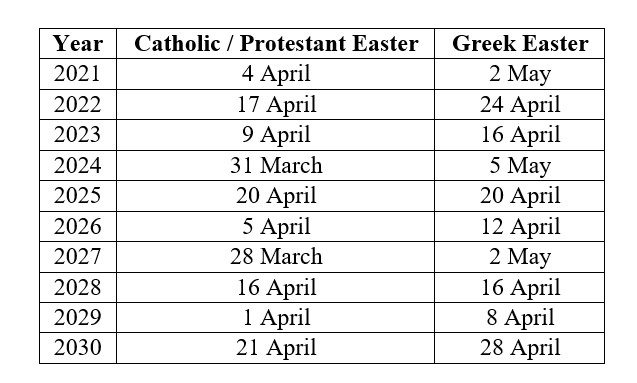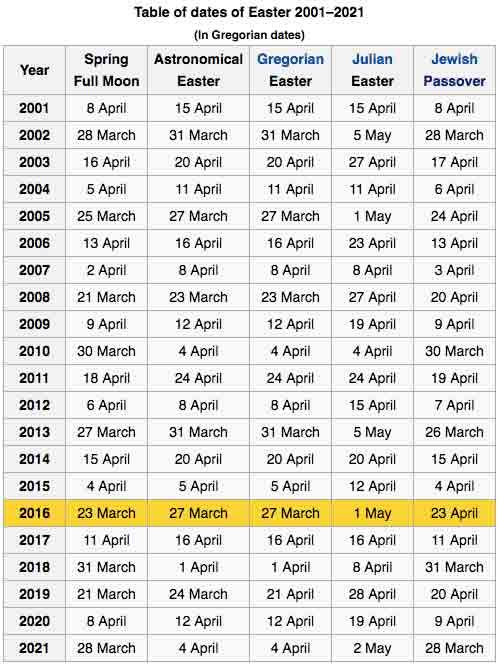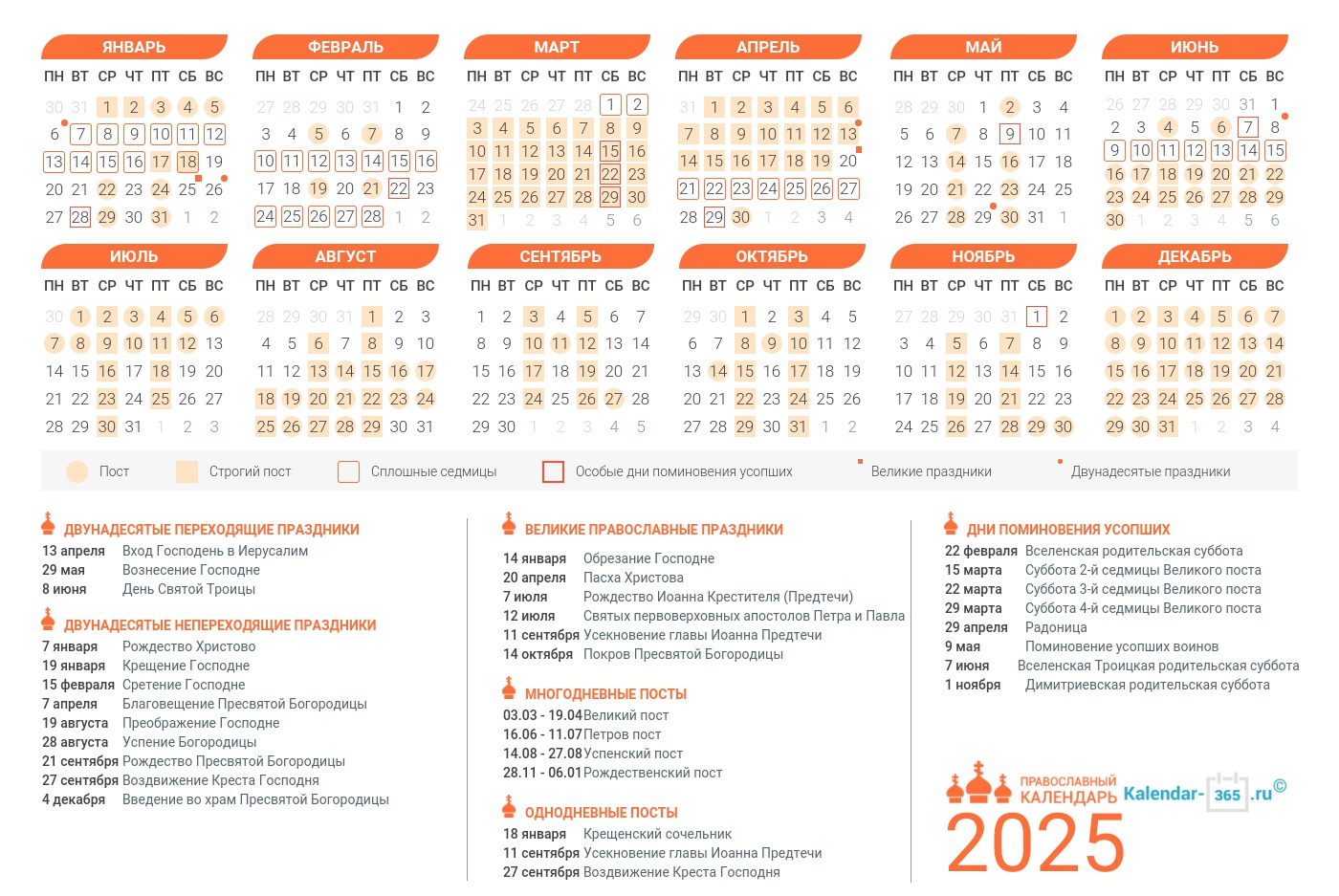Eastern Orthodox Fasting Calendar 2025: A Comprehensive Guide
Eastern Orthodox Fasting Calendar 2025: A Comprehensive Guide
Related Articles: Eastern Orthodox Fasting Calendar 2025: A Comprehensive Guide
- 2025 HK Calendar: A Comprehensive Overview
- April 6, 2025: A Glimpse Into The Future
- Creating A Comprehensive Calendar For 2025 In Excel With Indian Holidays
- 2025-2026 School Year Calendar: A Comprehensive Overview
- A Timeless Masterpiece: The 2025 Aesthetic Calendar
Introduction
With enthusiasm, let’s navigate through the intriguing topic related to Eastern Orthodox Fasting Calendar 2025: A Comprehensive Guide. Let’s weave interesting information and offer fresh perspectives to the readers.
Table of Content
Video about Eastern Orthodox Fasting Calendar 2025: A Comprehensive Guide
Eastern Orthodox Fasting Calendar 2025: A Comprehensive Guide

The Eastern Orthodox Church, with its rich liturgical tradition and emphasis on spiritual discipline, observes a strict fasting calendar throughout the year. This calendar plays a vital role in the spiritual life of Orthodox Christians, guiding them through periods of abstinence and preparation for major feasts and commemorations. The year 2025 will witness the observance of several significant fasting periods, each with its unique purpose and significance.
Great Lent (February 23 – April 12)
Great Lent, also known as the Holy and Great Fast, is the most important and rigorous fasting period in the Eastern Orthodox liturgical calendar. It begins on Clean Monday, February 23, and concludes on Holy Saturday, April 12. This 40-day fast commemorates Jesus Christ’s 40 days of fasting in the wilderness and prepares believers for the celebration of His Resurrection on Easter Sunday.
During Great Lent, Orthodox Christians abstain from meat, dairy products, eggs, fish, and oil. Additionally, they are encouraged to increase their prayer, fasting, and almsgiving. The first week of Great Lent is particularly strict, with many believers observing a complete fast from all food and drink. As the fast progresses, some relaxation in the dietary restrictions is allowed on weekends and certain feast days.
Holy Week (April 13 – April 19)
Holy Week, the week leading up to Easter Sunday, is a time of intense spiritual preparation and reflection. It begins on Palm Sunday, April 13, and culminates with the celebration of Christ’s Resurrection on Easter Sunday, April 19.
During Holy Week, Orthodox Christians observe a strict fast from all animal products, including meat, dairy, eggs, and fish. This fast is intended to purify the body and soul in preparation for the joy of Easter. Additionally, believers are encouraged to participate in daily services and engage in fervent prayer and repentance.
Apostles’ Fast (June 16 – June 28)
The Apostles’ Fast commemorates the apostles’ missionary journeys and their efforts to spread the Gospel. It begins on Monday, June 16, and concludes on the feast of Saints Peter and Paul, June 28.
During the Apostles’ Fast, Orthodox Christians abstain from meat and dairy products on Mondays, Wednesdays, and Fridays. This fast is less rigorous than Great Lent and serves as a reminder of the apostles’ sacrifices and their commitment to spreading the Christian faith.
Dormition Fast (August 1 – August 14)
The Dormition Fast commemorates the Dormition of the Theotokos, the Mother of God. It begins on Monday, August 1, and concludes on the feast of the Dormition, August 14.
During the Dormition Fast, Orthodox Christians abstain from meat on Mondays, Wednesdays, and Fridays. This fast is intended to prepare believers for the feast of the Dormition, which celebrates the Theotokos’ entry into eternal life.
Christmas Fast (November 15 – December 24)
The Christmas Fast, also known as the Nativity Fast, prepares believers for the celebration of the birth of Jesus Christ. It begins on Monday, November 15, and concludes on Christmas Eve, December 24.
During the Christmas Fast, Orthodox Christians abstain from meat, poultry, and dairy products on Mondays, Wednesdays, and Fridays. Additionally, they are encouraged to observe a strict fast from all animal products during the last week of the fast, known as the "strict fast." This fast is intended to purify the body and soul in preparation for the joy of Christmas.
Additional Fasting Periods
In addition to the major fasting periods listed above, the Eastern Orthodox Church also observes several other fasting periods throughout the year. These include:
- Fast of the Ninevites (February 10 – February 16)
- Fast of the Holy Apostles (June 16 – June 28)
- Fast of the Dormition (August 1 – August 14)
- Fast of the Beheading of John the Baptist (August 29 – September 11)
- Fast of the Exaltation of the Holy Cross (September 14 – September 27)
Conclusion
The Eastern Orthodox fasting calendar is an integral part of the spiritual life of Orthodox Christians. Through these periods of abstinence and preparation, believers seek to purify their bodies and souls, grow in their faith, and deepen their relationship with God. By observing these fasts with reverence and devotion, Orthodox Christians strive to emulate the example of Jesus Christ and the saints, and to prepare themselves for the joy of the major feasts and commemorations throughout the liturgical year.

.jpg)






Closure
Thus, we hope this article has provided valuable insights into Eastern Orthodox Fasting Calendar 2025: A Comprehensive Guide. We hope you find this article informative and beneficial. See you in our next article!